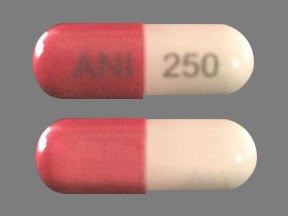
Etodolac Coupons & Savings Card – Discount Prices from $15.32
Generic for: Lodine
Etodolac is a prescription medication primarily used to alleviate pain and reduce inflammation associated with various conditions, including osteoarthritis, rheumatoid arthritis, and short-term pain. Available as a generic, Etodolac comes in immediate-release tablets for sudden pain relief and extended-release tablets for long-term management in individuals aged 6 years and older. As a non-steroidal anti-inflammatory drug (NSAID), Etodolac works by inhibiting the cyclooxygenase (COX) enzymes in the body, which are responsible for producing substances that cause inflammation, swelling, and pain. While effective, it may cause side effects such as stomach pain, dizziness, and rash. For chronic conditions like arthritis, consult your healthcare provider for advice on combining this medication with non-drug treatments or other therapies to manage your symptoms effectively.
Our coupons are free to use. Before paying, show the pharmacist your Etodolac savings card to get your free discount. Use our filters below to edit the prescription box to match your needs. The Etodolac prices will update based on your prescription needs. Above our Etodolac coupons, you can change your location to see pharmacy prices and costs in other areas. We're here to help you buy Etodolac at the lowest price with our prescription discount card.
My prescription
Edit
200MG, Etodolac (60 Capsules)
Select pharmacy

CVS
$25.76
COUPON PRICE
Albertsons
$15.32
COUPON PRICE
Walmart
$24.52
COUPON PRICE
Walgreens
$26.76
COUPON PRICEEtodolac savings card
Show this card to your pharmacist
Albertsons
$15.32
BIN
ID
PCN
GRP
019876
LH7CF5FEFE
CHIPPO
LHX
Powered by
Etodolac is a prescription medication primarily used to alleviate pain and reduce inflammation associated with various conditions, including osteoarthritis, rheumatoid arthritis, and short-term pain. Available as a generic, Etodolac comes in immediate-release tablets for sudden pain relief and extended-release tablets for long-term management in individuals aged 6 years and older. As a non-steroidal anti-inflammatory drug (NSAID), Etodolac works by inhibiting the cyclooxygenase (COX) enzymes in the body, which are responsible for producing substances that cause inflammation, swelling, and pain. While effective, it may cause side effects such as stomach pain, dizziness, and rash. For chronic conditions like arthritis, consult your healthcare provider for advice on combining this medication with non-drug treatments or other therapies to manage your symptoms effectively.
Our coupons are free to use. Before paying, show the pharmacist your Etodolac savings card to get your free discount. Use our filters below to edit the prescription box to match your needs. The Etodolac prices will update based on your prescription needs. Above our Etodolac coupons, you can change your location to see pharmacy prices and costs in other areas. We're here to help you buy Etodolac at the lowest price with our prescription discount card.
Related NSAIDs prescriptions
More prescriptions for rheumatoid arthritis
coupons from$19.83Save 80%
coupons from$983.22Save 62%
coupons from$186.58Save 49%
coupons from$12.96Save 73%
coupons from$17.34Save 52%
coupons from$7.84Save 63%
coupons from$21.67Save 35%
coupons from$5.98Save 87%
Related NSAIDs prescriptions
Naprosyn Save 74%coupons from $6.55
Zorvolex Save 93%coupons from $55.74
Elyxyb Save 74%coupons from $132.35
Indocin Save 89%coupons from $467.32
Salsalate Save 60%coupons from $26.66
Cambia Save 97%coupons from $89.85
Bromsite Save 80%coupons from $87.84
Daypro Save 49%coupons from $32.68
More prescriptions for rheumatoid arthritis
Dexamethasone Intensol Save 80%coupons from $19.83
Enbrel Save 62%coupons from $983.22
Tolectin 600 Save 49%coupons from $186.58
Sulindac Save 73%coupons from $12.96
Ft Aspirin Save 52%coupons from $17.34
Aspirin Save 63%coupons from $7.84
Cortef Save 35%coupons from $21.67
Celebrex Save 87%coupons from $5.98
Etodolac dosage forms
Use our Etodolac 200MG coupon with prices from $15.32 for 60 Capsules. You can also use our Etodolac 200MG coupon with prices from $19.24 for 90 Capsules. We have a Etodolac 200MG coupon with prices from $20.54 for 100 Capsules. You can use our Etodolac 200MG coupon with prices from $23.15 for 120 Capsules.
Dosage Quantity Price from Per unit 200MG 60 Capsules $15.32 $0.26 200MG 90 Capsules $19.24 $0.21 200MG 100 Capsules $20.54 $0.20 200MG 120 Capsules $23.15 $0.19 200MG 180 Capsules $30.97 $0.17 200MG 2400 Capsules $320.48 $0.13 300MG 20 Capsules $15.08 $0.75 300MG 21 Capsules $15.70 $0.75 300MG 28 Capsules $17.93 $0.64 300MG 30 Capsules $18.57 $0.62
| Dosage | Quantity | Price from | Per unit |
|---|---|---|---|
| 200MG | 60 Capsules | $15.32 | $0.26 |
| 200MG | 90 Capsules | $19.24 | $0.21 |
| 200MG | 100 Capsules | $20.54 | $0.20 |
| 200MG | 120 Capsules | $23.15 | $0.19 |
| 200MG | 180 Capsules | $30.97 | $0.17 |
| 200MG | 2400 Capsules | $320.48 | $0.13 |
| 300MG | 20 Capsules | $15.08 | $0.75 |
| 300MG | 21 Capsules | $15.70 | $0.75 |
| 300MG | 28 Capsules | $17.93 | $0.64 |
| 300MG | 30 Capsules | $18.57 | $0.62 |
| 300MG | 42 Capsules | $22.40 | $0.53 |
| 300MG | 45 Capsules | $23.36 | $0.52 |
| 300MG | 60 Capsules | $27.89 | $0.47 |
| 300MG | 90 Capsules | $32.68 | $0.36 |
| 300MG | 100 Capsules | $34.28 | $0.34 |
| 300MG | 120 Capsules | $37.48 | $0.31 |
| 300MG | 180 Capsules | $55.06 | $0.31 |
